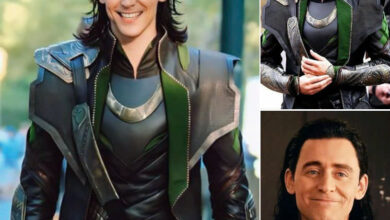The remarkable story of how Harrison Ford won the part of Han Solo
OPINION: This article may contain commentary which reflects the author's opinion.
With those matinee idol looks and nuclear-charged charisma, you’d think that Harrison Ford would have been a star from the moment he first joined Wisconsin’s Belfry Players in the summer of 1964.
That somehow some passing Hollywood bigwig would have seen that impossibly handsome 20-year-old and signed him up for a five-picture deal. “You, kid,” he might well have said, “are going to be the new Warren Beatty.”
Except it didn’t work out like that. Harrison Ford didn’t become that household name until he was into his mid-thirties, having spent much of the previous decade juggling middling acting jobs with working as a carpenter.
And though he’d managed to secure a few decent roles in a few decent flicks in the years before Star Wars, Ford’s acting career hadn’t taken off so much that he could retire the circular saw and utility knife.
In fact, Ford had only trained in carpentry as a result of the crappy roles he was being offered in the 1960s. Tiny, blink-and-you’ll-miss-him parts in TV shows such as Gunsmoke, Ironside and The Virginian weren’t offering him the financial stability he needed to support his then-wife and two young sons. And it’s not as if he felt valued in the business anyway.
When French director Jacques Demy earmarked Ford for the lead role of his first American film, Model Shop (1969) the head of Columbia Pictures stated Ford had ‘no future’ in the movie biz and instructed Demy to hire a more experienced actor (the part eventually went to 2001: A Space Odyssey star Gary Lockwood).
“Through carpentry, I fed my family and began to pick and choose from among the roles offered,” Ford said. “I could afford to hold out until something better came along. But I never gave up my ambition to be an actor. I was frustrated but never felt defeated by my frustration.”
Ford’s acting career, however, saw a small upturn in the 1970s. In 1972, casting director Fred Roos, for whom Ford was working for as a carpenter, secured the by-now part-time actor an audition with George Lucas for a comedy-drama set in the Modesto, California of the director’s youth.
An impressed Lucas offered Ford the part of Bob Falfa in 1973’s American Graffiti, only Ford said he would only take the role on the condition that he keep his own his hair (the character was specified as having a flattop in the script). Lucas agreed, and arranged for Ford to wear a Stetson in the film to cover up his oh-so-70s barnet.
American Graffiti was a roaring success, but it didn’t exactly lead to a slew of job offers. Yet the movies Ford was being offered were at least impressive. On the advice of Roos, Francis Ford Coppola secured him small roles in The Conversation and Apocalypse Now (which, although released in 1979, was lensed pre-Star Wars).
But how did the then-34-year-old part-time chippie land the role of Han Solo? George Lucas wasn’t keen on using any actors from his previous film, worried that his sci-fi epic would be dismissed as ‘American Graffiti in space’.
Roos, however, was convinced Ford was a perfect match for the Corellian captain. Though Lucas was adamant, Roos decided to hire Ford to build a door for him at the offices of American Zeotrope, where Lucas had scheduled the casting call.
“Harrison had done a lot of carpentry for me,” Roos said. “He needed money, he had kids, he wasn’t a big movie star yet. The day he was doing it, George happened to be there. It was serendipitous.”
Ford did end up playing Solo at those auditions, but it wasn’t for the purpose of seeing whether he was right for the part. Having spotted him working, Lucas asked Ford to assist in the auditions by feeding lines to the other actors.
Despite names such as Kurt Russell, Christopher Walken and Nick Nolte reading for Han Solo, it was this handsome, laconic and effortlessly charismatic carpenter who was clearly the best fit. After Star Wars came out in 1977, Harrison Ford was finally able to give up the day job.
Ford has described himself as a ‘late bloomer’, but looking back on his career – that ‘no future’ burn from that studio head and that run of poorly paid, creatively frustrating TV and film roles and then the brainwave to train in a craft to support his young family — it all seems to lead to Star Wars and thus to Indiana Jones, Blade Runner and a host of big screen classics.
Had Harrison Ford not turned to carpentry, it’s entirely possible that Kurt Russell would have nabbed the part of Han Solo and that Dustin Hoffman would have essayed the role of Rick Deckard and Tom Selleck would have cracked the whip as Indiana Jones.
As Harrison Ford turns 80, it’s worth reminding ourselves that it’s often luck, as well as talent, that makes some people megastars.



